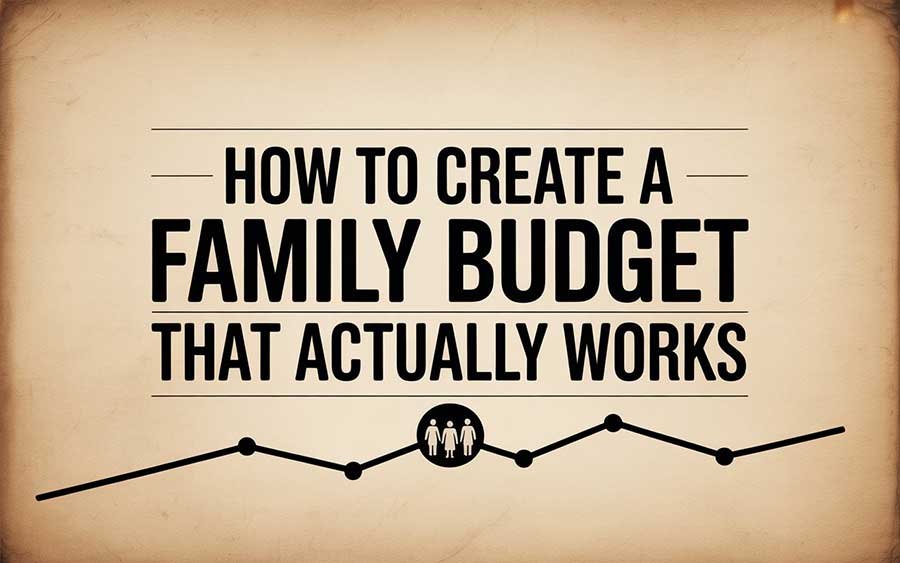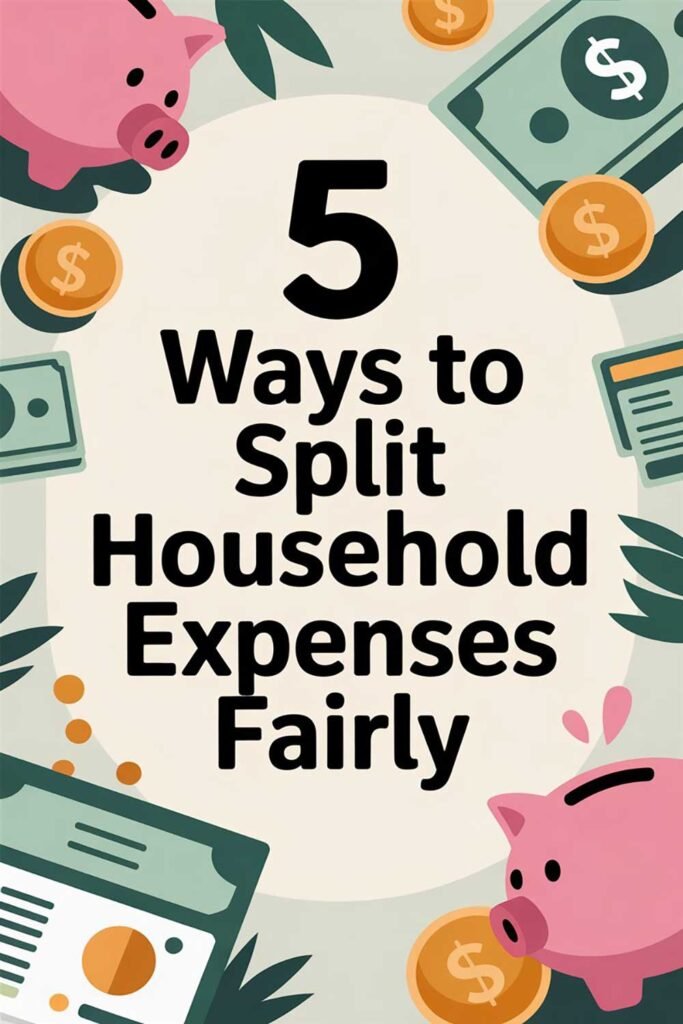
How to Create a Family Budget That Actually Works
Creating a family budget can feel overwhelming — especially when bills are piling up, kids have unexpected needs, and every dollar seems to vanish before the month ends. But the truth is, a well-planned budget isn’t restrictive. It’s empowering. It gives your family the freedom to spend intentionally, save confidently, and sleep peacefully at night.

In this comprehensive guide, we’ll break down how to create a family budget that actually works — one that’s realistic, flexible, and truly sustainable.
What Is a Family Budget?
A family budget is a plan for how your household will spend and save money over a specific period — usually monthly. It tracks income, expenses, savings goals, and priorities, helping your family stay aligned financially.
It’s not just numbers on a spreadsheet. It’s a reflection of your values, goals, and the kind of life you want to create together.
Why Most Budgets Fail (And How to Avoid It)
Before diving into how to create a solid budget, it’s important to understand why many budgets fall apart:
- They’re too strict or unrealistic
- They don’t include every family member
- They’re not adjusted regularly
- They lack a real purpose or motivation
The solution? Build a budget with your whole family that is flexible, goal-driven, and reviewed often.
Step-by-Step: How to Create a Family Budget That Works
1. Figure Out Your Total Household Income
Add up all income sources:
- Salaries
- Freelance or side income
- Child support or alimony
- Government benefits
Use net income (what hits your bank account) — not gross pay.
2. Track Every Expense (Yes, Every One)
For one month, track everything — groceries, subscriptions, gas, snacks, kids’ activities, etc. Use apps like:
- Mint
- YNAB (You Need a Budget)
- EveryDollar
- A simple spreadsheet or notebook
Categorize into:
- Fixed expenses (mortgage, utilities, insurance)
- Variable expenses (groceries, gas, entertainment)
- Irregular expenses (annual fees, birthdays)
3. Set Family Financial Goals
Involve everyone. Goals create motivation.
- Emergency fund?
- Pay off credit cards?
- Save for a vacation?
- Start a college fund?
Let your goals shape your spending decisions.
4. Choose a Budgeting Method That Fits Your Lifestyle
Different families thrive on different methods:
The 50/30/20 Rule:
- 50% needs
- 30% wants
- 20% savings/debt repayment
Zero-Based Budget:
Every dollar is assigned a job. Income – Expenses = $0
Envelope System:
Cash for specific categories to prevent overspending.
Choose what works best for your personality and family needs.
5. Review and Adjust Weekly
Check in weekly with your partner or family. Celebrate wins, spot overspending, and tweak what’s not working.
Budgeting isn’t a one-and-done task — it’s a living system.
Real-Life Examples of Family Budget Success
Lisa & Mike – Debt-Free in Two Years
Lisa and Mike had over $35,000 in credit card debt. They started tracking every dollar, cut unnecessary subscriptions, and used the snowball method to pay off debt. Two years later, they’re debt-free and saving for their first home.
James – Budgeting as a Single Dad
James used to live paycheck to paycheck. After creating a simple 50/30/20 budget, he was able to build a $3,000 emergency fund in six months, giving him peace of mind as the sole provider.
The Thompsons – Teamwork Makes the Dream Work
With three kids and one income, the Thompsons made budgeting a family affair. They started “Money Mondays,” involving the kids in meal planning and savings goals. Their grocery bill dropped by 25%, and their kids are now savvy savers.
Budgeting Tips for Families
- Use cash-back apps like Rakuten or Ibotta
- Meal plan weekly to cut food waste
- Limit impulse buys by implementing a 24-hour rule
- Negotiate bills (internet, insurance, subscriptions)
- Include fun money so no one feels deprived
- Have monthly money meetings as a couple or family
20 Quotes About Budgeting and Financial Planning
- “A budget is telling your money where to go instead of wondering where it went.” – Dave Ramsey
- “Do not save what is left after spending, but spend what is left after saving.” – Warren Buffett
- “Beware of little expenses; a small leak will sink a great ship.” – Benjamin Franklin
- “The best way to gain financial freedom is to plan for it.” – Suze Orman
- “It’s not about how much money you make. It’s about how you manage it.” – Unknown
- “Money, like emotions, is something you must control to keep your life on the right track.” – Natasha Munson
- “Balancing your money is the key to having enough.” – Elizabeth Warren
- “A good plan today is better than a perfect plan tomorrow.” – George S. Patton
- “Failing to plan is planning to fail.” – Alan Lakein
- “The secret to getting ahead is getting started.” – Mark Twain
- “You can’t have a million-dollar dream with a minimum-wage habit.” – Unknown
- “Budgeting isn’t about limiting yourself — it’s about making the things that excite you possible.” – Unknown
- “Save money, and money will save you.” – Jamaican Proverb
- “Financial fitness is not a pipe dream or a state of mind — it’s a reality if you are willing to pursue it and embrace it.” – Will Robinson
- “When you understand money, life is incredibly simple.” – Unknown
- “A year from now, you’ll wish you had started today.” – Karen Lamb
- “Your budget is a blueprint for building the life you want.” – Unknown
- “Don’t tell me what you value, show me your budget, and I’ll tell you what you value.” – Joe Biden
- “Money is only a tool. It will take you wherever you wish, but it will not replace you as the driver.” – Ayn Rand
- “Discipline is the bridge between goals and accomplishment.” – Jim Rohn
Picture This
Imagine a quiet Sunday evening. You and your spouse sit at the kitchen table, laptops and notebooks in front of you. You talk about your goals — a family vacation, paying off the car, starting college savings. You open your budget, and for once, it all makes sense. You’re not guessing. You’re not arguing. You’re on the same page.
Your kids are learning about money by watching you lead with intention. Your family isn’t just surviving — it’s thriving.
What would your life look like if money wasn’t a constant source of stress?
Please Share This Article
If you found this guide helpful, please share it with another family, couple, or parent you know. You might just help them take the first step toward financial peace and teamwork.
Disclaimer
This article is for informational purposes only and reflects personal experiences, general financial strategies, and publicly available information. It is not financial advice. For personalized guidance, consult a certified financial advisor.






